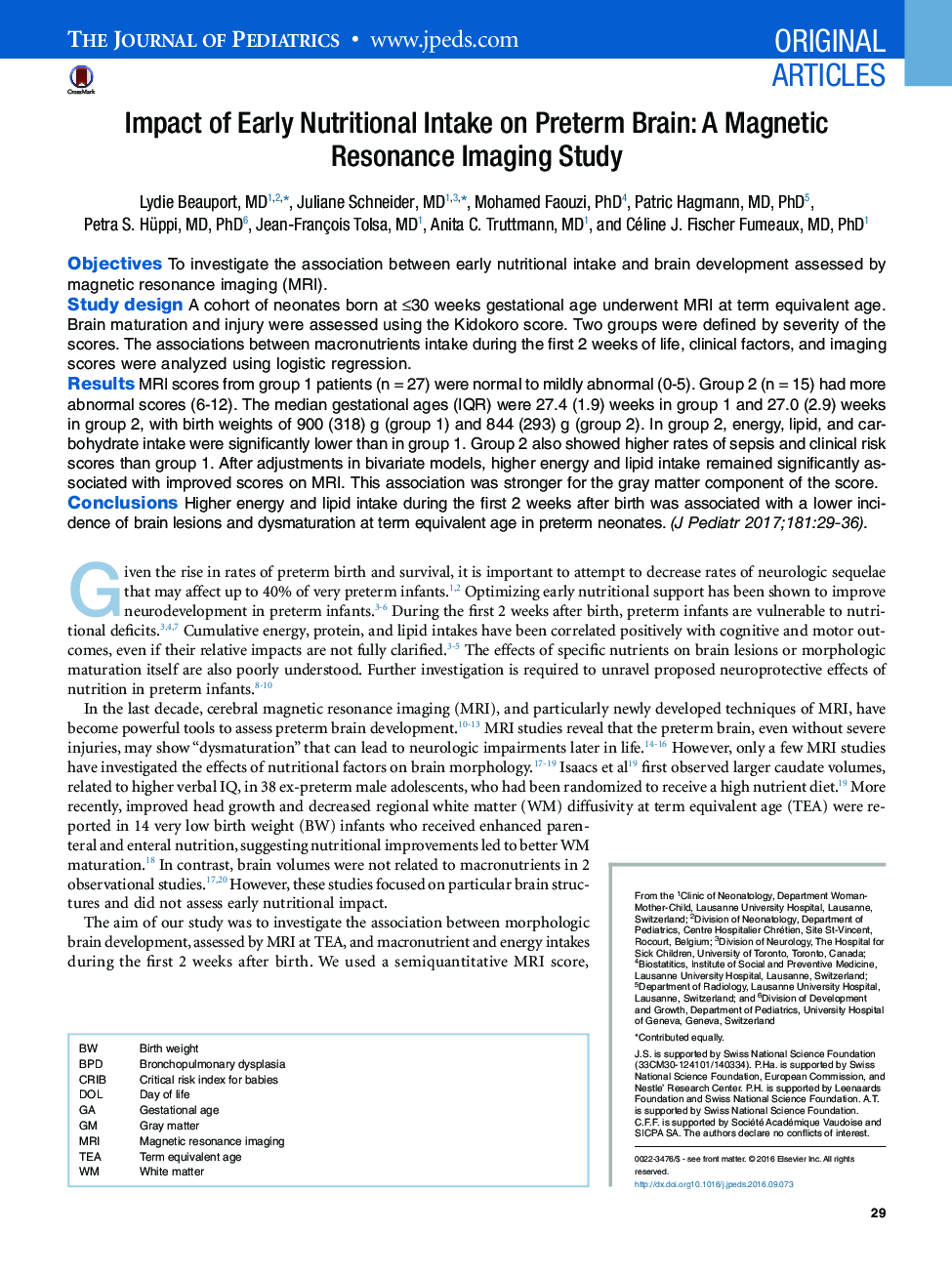| Article ID | Journal | Published Year | Pages | File Type |
|---|---|---|---|---|
| 5719182 | The Journal of Pediatrics | 2017 | 9 Pages |
ObjectivesTo investigate the association between early nutritional intake and brain development assessed by magnetic resonance imaging (MRI).Study designA cohort of neonates born at â¤30 weeks gestational age underwent MRI at term equivalent age. Brain maturation and injury were assessed using the Kidokoro score. Two groups were defined by severity of the scores. The associations between macronutrients intake during the first 2 weeks of life, clinical factors, and imaging scores were analyzed using logistic regression.ResultsMRI scores from group 1 patients (nâ=â27) were normal to mildly abnormal (0-5). Group 2 (nâ=â15) had more abnormal scores (6-12). The median gestational ages (IQR) were 27.4 (1.9) weeks in group 1 and 27.0 (2.9) weeks in group 2, with birth weights of 900 (318) g (group 1) and 844 (293) g (group 2). In group 2, energy, lipid, and carbohydrate intake were significantly lower than in group 1. Group 2 also showed higher rates of sepsis and clinical risk scores than group 1. After adjustments in bivariate models, higher energy and lipid intake remained significantly associated with improved scores on MRI. This association was stronger for the gray matter component of the score.ConclusionsHigher energy and lipid intake during the first 2 weeks after birth was associated with a lower incidence of brain lesions and dysmaturation at term equivalent age in preterm neonates.
